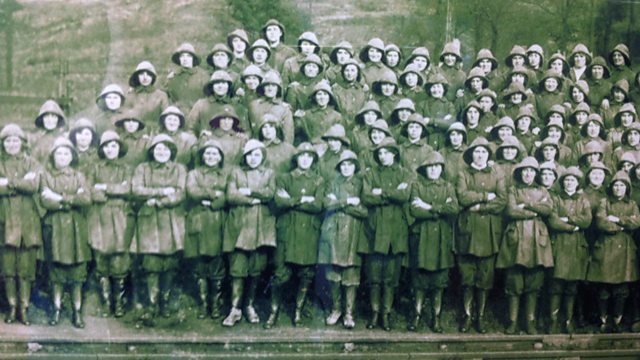Ebbw Vale Steel Iron & Coal: A Company Of Heroes
In the centre of Steel Works Road in Ebbw Vale stands the impressive building of the General Offices of the Ebbw Vale Steel, Iron & Coal works
In the centre of Steel Works Road in Ebbw Vale stands the impressive building of the General Offices of the Ebbw Vale Steel, Iron & Coal works, which was once one of the greatest steel companies in the world.
Today it’s a museum - home to a fantastic collection of artefacts and archives spanning the history of coal, iron and steelmaking in the community of Ebbw Vale and the surrounding area. If you had been here one hundred years ago, you would have found something rather different.
In 1914, the British government's biggest challenge was finding enough men to turn Britain into the land power that was needed to win the Great War.
Not only did this company produce steel, iron and coal, it also recruited its own army, manufactured munition shells and also Wales’ greatest war hero of all time.
Sir Frederick Mills, the chairman of the Ebbw Vale Steel Iron & Coal company, began to actively recruit hundreds of strong, resourceful men whose lives were already fraught with danger and injury in the work place.
Fondly known as ‘Mills Army’, this locally-raised ‘Pals battalion' was formed with men from the same community on the understanding that they would train and, eventually, fight together. Amongst them was Jack Williams VC, who today remains the most decorated non-commissioned Welsh officer of all time.
As an incentive, The Ebbw Vale Steel Iron & Coal Company was the first large employer in South Wales to give an allowance to dependants of men who joined up and the company also kept their promise that every man should have his own job back if able to perform his duties on his return.
It all began so cheerfully in the August of 1914, in gorgeous weather, with the troops itching to join the great adventure abroad. A chorus of hoots and sirens filled the air as a large crowd and military band sent the newly recruited Mills Army, now part of the 10th South Wales Borderers, noisily on their way.
Each of the men mobilised to fight had to be trained, armed, clothed and fed in training camps across the UK before being transported to France. As they made the crossing to France, a message is read out to all those on deck from King George V, "You are leaving home to fight for the safety and honour of the British Empire… I pray God to bless you and guard you and bring you back victorious".
Meanwhile, on the homefront, as War begins the women of Ebbw Vale get to work. A munitions shell factory was established which made castings in the fitting shop. In the museum today you will find a picture labelled Outdoor Workers Employed by EVSIC Company October 1917. Here the women are all dressed in galoshes and coats and hats.
A popular character in the works office was Billy Collins. His job was opening the mail, writing out notes for drivers and weighing loads - a remarkable feat considering he had no arms following an accident in 1916.
He was only 14 when he lost both his arms, caught in a clay milling machine. Amazingly he returned to work as a clerk. Holding a pencil in his mouth he practised writing words and names of places over and over again on an old brickworks ledger, until his writing became legible and consistent.
He invented many aids to help him, a shovel which fitted on his foot, so he could get coal for the fire, and a stand for his razor. Humour was especially important and highly valued amongst the very heavy and dangerous jobs in furnaces and particularly during the war years.
On their return from war, Billy taught wounded service men how to cope and lead full and active lives if they had lost limbs like himself. Entertaining people with humour was Billy’s strength.
Billy’s story is just one example of how, in Ebbw Vale, there was a tradition of looking after company employees dating back to the early Quaker iron families. Sir Frederick Mills who had recently lost his young daughter, even offered to adopt Billy after his accident.
Tragically over 400 workers didn’t return from the Great War. The impact of these losses on the community and families from Ebbw Vale and the surrounding area was enormous.
Location: Works Museum, Steelworks Road, Ebbw Vale, Blaenau Gwent, NP23 6DN
Image of Ebbw Vale Munition Workers (1916) courtesy of Ebbw Vale Works Museum
Duration:
This clip is from
Featured in...
![]()
Â鶹ԼÅÄ Radio Wales—World War One At Â鶹ԼÅÄ
Places in Wales that tell a story of World War One
![]()
War at Â鶹ԼÅÄ
Refugees, internment, training and protest.
More clips from World War One At Â鶹ԼÅÄ
-
![]()
The loss of HMY Iolaire
Duration: 18:52
-
![]()
Scotland, Slamannan and the Argylls
Duration: 07:55
-
![]()
Scotland Museum of Edinburgh mourning dress
Duration: 06:17
-
![]()
Scotland Montrose 'GI Brides'
Duration: 06:41








